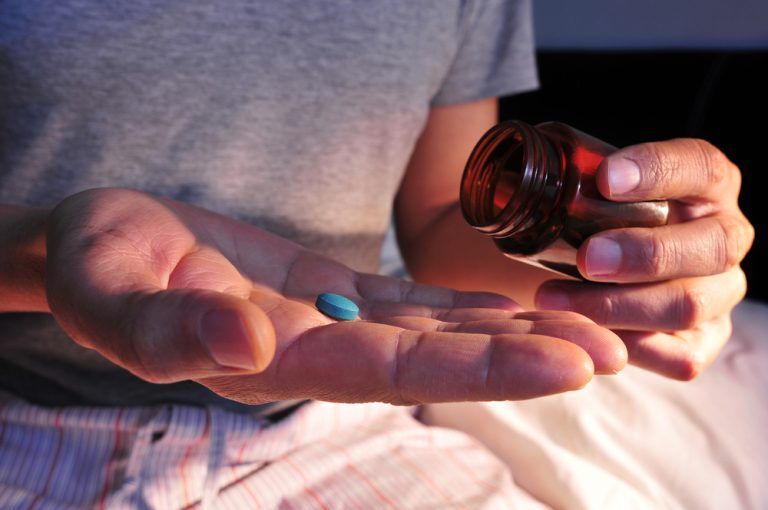Detox from Prescription Drugs
Advance Minds Blog
A safe space to explore subjects within the community such as mental health, substance abuse and personal identity.
Our safe space also provides the opportunity for real individuals to express their hardships and success through writing.
Detox from Prescription Drugs: A Safe and Effective Recovery Guide

Prescription drug dependence is a growing concern, especially with medications like opioids, benzodiazepines, and stimulants. Detoxing from prescription drugs can be challenging, as withdrawal symptoms range from mild discomfort to life-threatening conditions. A safe and supervised detox is essential for long-term recovery.
1. What is Prescription Drug Detox?
- Definition: The process of eliminating prescription medications from the body while managing withdrawal symptoms.
- Purpose: Helps individuals overcome physical dependence and transition into addiction recovery.
- Duration: Varies based on the drug type, dosage, length of use, and individual health.
2. Common Prescription Drugs That Require Detox
Opioids (Painkillers) – High Risk for Dependence
- Oxycodone (OxyContin, Percocet)
- Hydrocodone (Vicodin)
- Fentanyl
- Morphine
- Codeine
Benzodiazepines (Anti-Anxiety & Sleep Medications) – Dangerous to Quit Suddenly
- Alprazolam (Xanax)
- Diazepam (Valium)
- Lorazepam (Ativan)
- Clonazepam (Klonopin)
Stimulants (ADHD & Narcolepsy Medications) – Can Cause Psychological Dependence
- Adderall (Amphetamine)
- Ritalin (Methylphenidate)
- Vyvanse
Antidepressants – Can Cause Discontinuation Syndrome
- SSRIs (Prozac, Zoloft, Lexapro)
- SNRIs (Cymbalta, Effexor)
- Tricyclic Antidepressants
Sleep Medications – May Lead to Dependence
- Ambien
- Lunesta
- Sonata
3. Symptoms of Prescription Drug Withdrawal
Opioid Withdrawal (Begins 6-12 Hours After Last Dose)
- Muscle aches, sweating, chills
- Nausea, vomiting, diarrhea
- Anxiety, irritability, insomnia
- Intense cravings
Benzodiazepine Withdrawal (Begins 1-4 Days After Last Dose)
- Anxiety, panic attacks, depression
- Insomnia and restlessness
- Tremors, muscle spasms
- Seizures (in severe cases)
Stimulant Withdrawal (Begins 24-48 Hours After Last Dose)
- Extreme fatigue, depression
- Increased appetite
- Difficulty concentrating
- Intense drug cravings
Antidepressant Withdrawal (Begins 1-3 Days After Last Dose)
- Dizziness, brain zaps, nausea
- Mood swings, anxiety
- Sleep disturbances
- Flu-like symptoms
4. Is It Safe to Detox at Home?
- Mild withdrawal: Some individuals can detox at home with proper support.
- Severe withdrawal: Medical detox is recommended for opioids, benzodiazepines, and alcohol due to life-threatening risks.
🚨 Warning: Quitting benzodiazepines or opioids "cold turkey" can be dangerous. Medical supervision is strongly recommended.
5. Safe Prescription Drug Detox Methods
Medical Detox (Recommended for Moderate to Severe Withdrawal)
- Supervised detox in a hospital or rehab center to monitor symptoms and prevent complications.
- Medications provided to ease withdrawal:
- Opioid detox: Methadone, buprenorphine (Suboxone), or naltrexone to reduce cravings.
- Benzodiazepine detox: Gradual tapering under medical supervision to prevent seizures.
- Stimulant detox: Sleep aids and antidepressants to manage symptoms.
At-Home Detox (For Mild Cases and Under Medical Guidance)
- Tapering off the drug (slowly reducing dosage) is safer than quitting abruptly.
- Hydration & Nutrition: Drink water and eat a balanced diet to replenish nutrients.
- Exercise & Sleep: Helps manage stress and improves overall well-being.
- Seek Support: Family, friends, or online groups can provide emotional encouragement.
6. What to Expect During Detox
Day 1-3:
- Withdrawal symptoms begin, including anxiety, nausea, and mood swings.
- Symptoms peak within the first 48 hours for most prescription drugs.
Day 4-7:
- Symptoms gradually improve, but cravings and fatigue may persist.
- Psychological withdrawal (anxiety, depression) may intensify.
Week 2 and Beyond:
- Most physical symptoms fade, but mental and emotional recovery continues.
- Therapy and support groups help prevent relapse.
7. Post-Detox Recovery: Preventing Relapse
- Rehab Programs: Inpatient or outpatient treatment can help long-term recovery.
- Therapy Options:
- Cognitive Behavioral Therapy (CBT): Helps identify and change negative thought patterns.
- Support Groups (NA, SMART Recovery): Provides accountability and encouragement.
- Medication-Assisted Treatment (MAT):
- Opioid addiction: Suboxone, Methadone, or Naltrexone.
- Benzodiazepine addiction: Gradual tapering under doctor supervision.
- Healthy Lifestyle Changes: Regular exercise, stress management, and a nutritious diet improve well-being.
8. When to Seek Professional Help for Detox
- If you have a history of severe withdrawal symptoms.
- If detoxing from opioids, benzodiazepines, or alcohol (which can be dangerous).
- If you experience hallucinations, seizures, or suicidal thoughts.
- If you have underlying mental health conditions that need support.
Final Thoughts
Detoxing from prescription drugs is a crucial first step toward recovery, but it must be done safely.
If you or a loved one is struggling with prescription drug dependence, seek medical support. With the right care, long-term recovery and a healthier life are possible! 💙
















